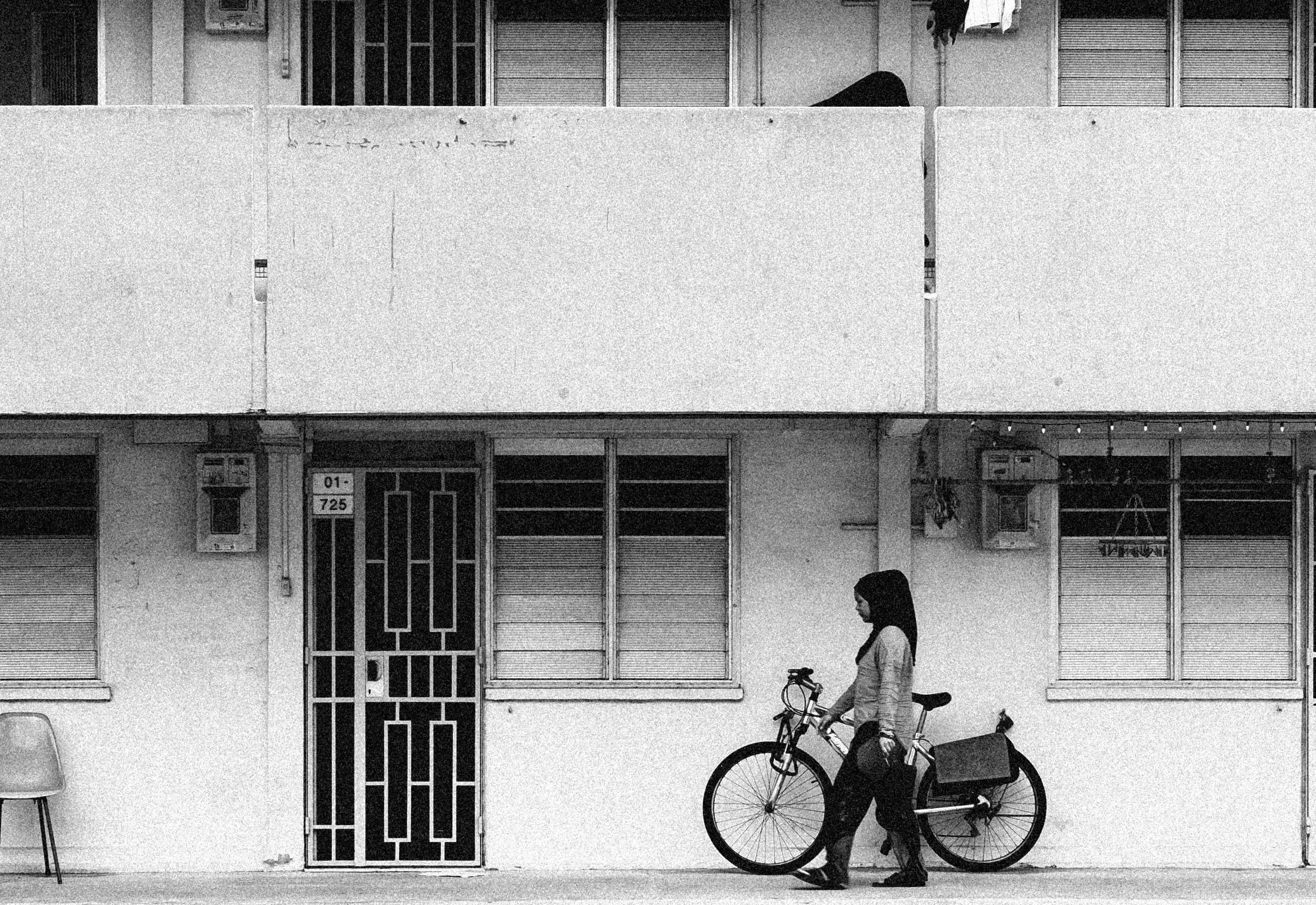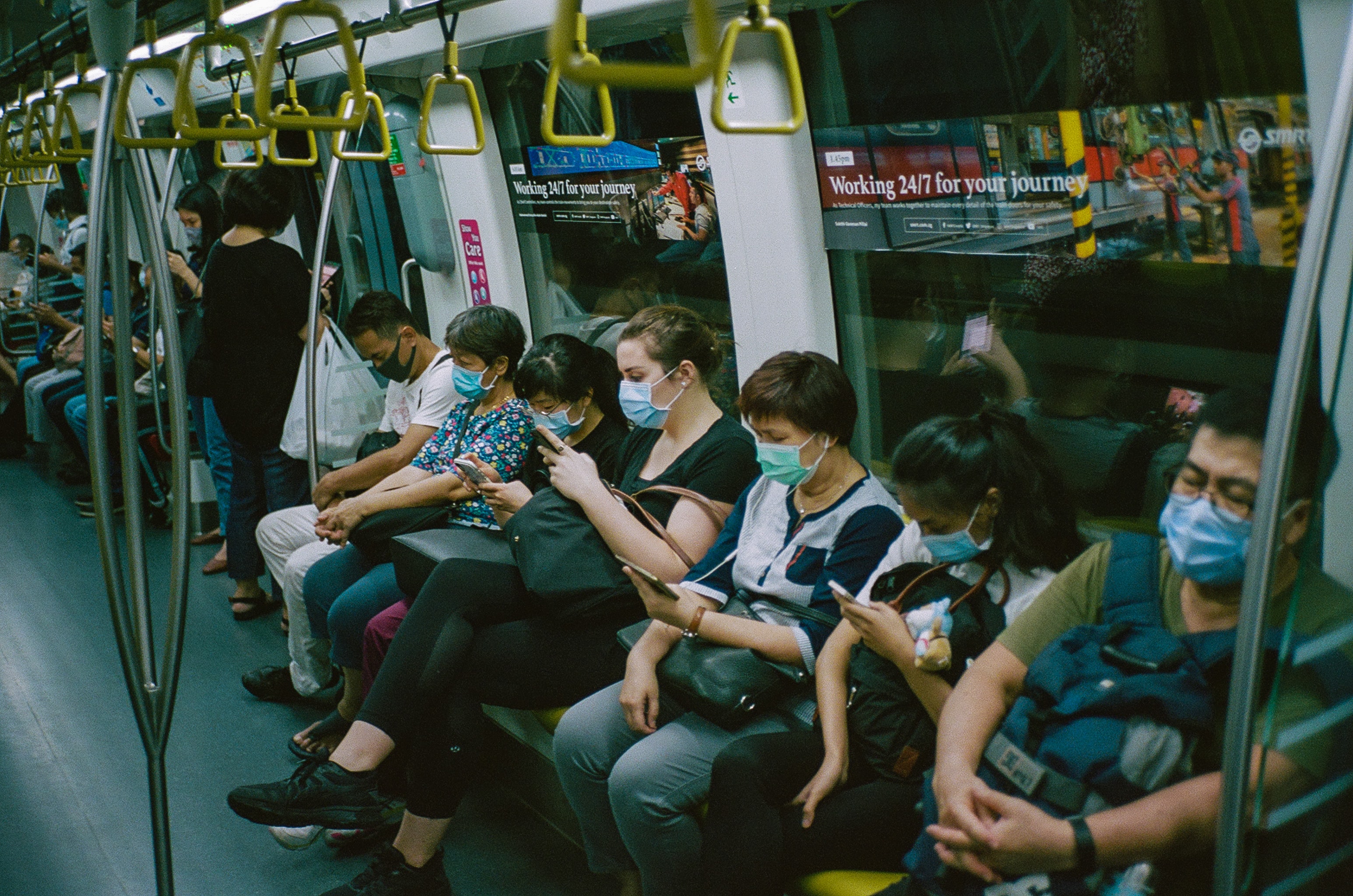COVID-19 in Singapore
It has nearly been a year since the unprecedented pandemic of COVID-19 hit our sunny shores. Even as Singaporeans are gradually easing into their new normal involving limited social gatherings and mask wearing, the impacts of COVID-19 continue to be felt across all echelons of society. Yet, as much as we might want to believe that the crushing grips of COVID-19 is a shared suffering, the truth remains that oftentimes, the adverse impacts of such calamities affect some more than others.
To date, the COVID-19 pandemic has infected over 50 million individuals worldwide, and claimed over a million lives. In Singapore alone, the number of cases stand at over 58,000. Beyond simply affecting the health of thousands of individuals, Singaporeans also had to tackle the impacts of a crippled economy and restricted social interactions.
DBS examined the impact of COVID-19 on the financial situations of their customers in their report, DBS NAV Financial Health Series. Their data, collated over the months of March, April, and May 2020, arrived at some interesting conclusions.
They found that COVID-19 has caused a significant reduction of income (more than 10%) in 26% of customers in May. A third of these customers experienced a decline in income of more than 50%.
Of more concern, however, is the demographic of individuals who made up those who suffered pay cuts. Specifically, the lower income group (defined as individuals who earn a monthly salary of SGD2,999 or less) made up 49% of those affected. Among this, 51% saw their incomes decline by more than 50%.
Impact of COVID-19 on lower-income households

The results from the DBS study was corroborated by Jamie Ma from Thye Hwa Kwan Moral Charities (THKMC). According to Ms Ma, there has been an increase in assistance requested by lower-income families since the pandemic struck Singapore nearly a year ago.
As at the end of September 2020, THKMC saw an increment of 58% in new cases seeking assistance as compared to March 2020. They assisted 170 families with emergency funds in a six month period from April to September 2020, as compared to 180 families in a 12-month period of April 2019 to March 2020.
According to Ms Ma, lower-income families struggled with a range of issues due to the pandemic, including but not limited to:
- job losses;
- lesser working days (for daily wage workers) which impact their income;
- longer working hours (as companies cut manpower);
- increased stressors as a result of insufficient financial resources for healthy food; and
- interpersonal conflicts with family due to spending more time at home, compounded by the stressors of space constraints, family violence, parenting and caregiving issues, as well as isolation due to safe distancing.
While many of these issues apply to those from other demographics as well, these stressors are often exacerbated in the case of lower-income families. For instance, experiencing a pay cut is a trying situation for anyone, but it is extremely precarious for low-income families who are heavily reliant on a regular paycheck to meet their monthly cash flow.
The mental strain of lost income

TheHomeGround reached out to Jannah (the name has been changed to protect the privacy of the family), 46, to better understand how she is coping with the COVID-19 pandemic. Jannah lives in a one-room flat with three others from her household that are dependent on her for support. As a result of the pandemic, she experienced a loss of income, impacting her ability to pay off her arrears while supporting her family.
When asked about the situation, Jannah said, “Stress develops especially when you are tired. We worry more as to how to earn like before. Everything gets [backlogged]. We can’t pay our outstanding and arrears like before.”
Jannah is not alone in her worries. Beyond Social Services, a charity dedicated to helping under-privileged youth, did their own research by asking their members how they have been impacted by the COVID-19 pandemic. They, too, found that financial strain on low-income families have been causing much stress and anxiety, as concerns mount on how to pay for household expenses and compounded arrears.
Caregiving woes

A less visible facet of the troubles faced by lower-income households lie in their struggles with caregiving duties during the pandemic. Many lower-income families are disproportionately employed in what is deemed as essential services such as security personnel or those in the food and beverage (F&B) sector. These individuals do not have the option to work from home, and are generally paid only when they show up to work.
This posed a serious problem as stricter measures are imposed in childcare centres and schools. Longer medical leaves are given out, requiring children to stay home for extended periods of time. In such cases, working parents will have to take time off work to care for the children, especially since lower-income households are usually unable to afford additional childcare.
Beyond Social Services addressed this concern in their report, citing examples of how a mother had to take two weeks off work when a childcare centre was closed after a teacher tested positive for the virus. Taking two weeks off work may mean two weeks without income for such family, and possibly risking the loss of jobs as well.
Education is another area where lower-income families felt the pinch. During the circuit breaker period, schools adopted home-based learning and taught their classes online instead. However, the 2017/2018 Household Expenditure Survey found that only 45% of families residing in 1- and 2-room HDB flats have internet access, and only 31% of these families have a personal computer. This unequal access to technology is known as the digital divide, and is indicative of the disadvantages lower-income households face when it comes to accessing educational resources during these times.
Jannah, too, hoped for greater support from the government when it comes to caregiving responsibilities. While she was appreciative of the food rations and grants during this time, she hopes that assistance will be extended to help students catch up in school as well. Additionally, she also mentioned the need for more support for elderly care, so that breadwinners can focus on their jobs and making a living without having to worry about such matters.
Why does this matter?

This is not the first, and it won’t be the last, account of how a crisis unequally impacts those who are more vulnerable. In their article, Yeo You Yenn (Associate Professor in Sociology) and Ng Kok Hoe (Senior Research Fellow from Lee Kuan Yew School of Public Policy) suggest that in times of prosperity, we believe that people do not need help; on the contrary, in times of need, we deem there to be insufficient means to help.
The truth is that the problems that lower-income households face daily have only been exacerbated during this pandemic. Now more than ever, they require assistance.
Yeo and Ng puts it well in their article: “The current crisis illuminates. It shows us where we most need to intervene to strengthen our social policies…In crisis, we may seek immediate relief that does not benefit society in the long run…but if we want our shared futures to be better, we cannot allow ourselves to live in suspended reality. We must aspire to more, we owe future generations more.”
It took a pandemic before we decided it was long due time to take action and improve the living conditions of migrant workers here in Singapore. Admittedly, the circumstances and subsequent solutions required to help the lower-income households in Singapore are multi-faceted and complex. They will require both top-down structural changes and bottom-up initiatives from the grassroots. But like Yeo and Ng mention, we should always be aiming to do better.
What can we do to help?

According to Ms Ma from THKMC, most of the support requested by lower-income families during this time are related to financial, employment, parenting, and relationship issues. Many of them required financial and practical support to supplement a loss of (or reduced) income.
If we run into someone that we believe requires assistance, Ms Ma suggests doing the following:
- Identifying who may need help and referring them to relevant agencies for assistance (a list of agencies and their contact details has been included at the end of this article)
- Encouraging them to seek assistance from social service agencies
- Call ComCare Hotline to refer them to social service agencies
- Be aware of possible family violence incidents, of which there been an increase during the pandemic. Reach out to the relevant institutions should assistance be required
- Be empathetic and understanding of their circumstances, and provide them with emotional support and encouragement
- Volunteer or make donations to support causes that help these families
Some households may not have the necessary information on what assistance is available to them or how to apply for it. If you know of anyone who requires assistance, do take the necessary steps and contact the relevant organisations listed below.
Need help?
The National Council for Social Services have set up the following funds to support Singaporeans:
- Temporary Relief Fund (TRF): For individuals who lost their jobs or faced an income loss of at least 30% due to COVID-19
- COVID-19 Support Grant: For employees who lost their jobs due to COVID-19
- The Courage Fund: For affected lower-income households whose family members have contracted COVID-19 or are on Stay-Home Notice, mandatory Leave of Absence, or Home Quarantine Order
Those who require assistance can also be directed to the ComCare Call (1800-222 0000) or National Care Hotline (1800-202-6868), or use the ‘Ask Jamie’ option via MSF Website. Alternatively, they can approach the nearest social service agency for assistance.
Those who require emotional or psychological support can find a list of contacts here should they require assistance or someone to talk to.
Join the conversations on THG’s Facebook and Instagram, and get the latest updates via Telegram.




























